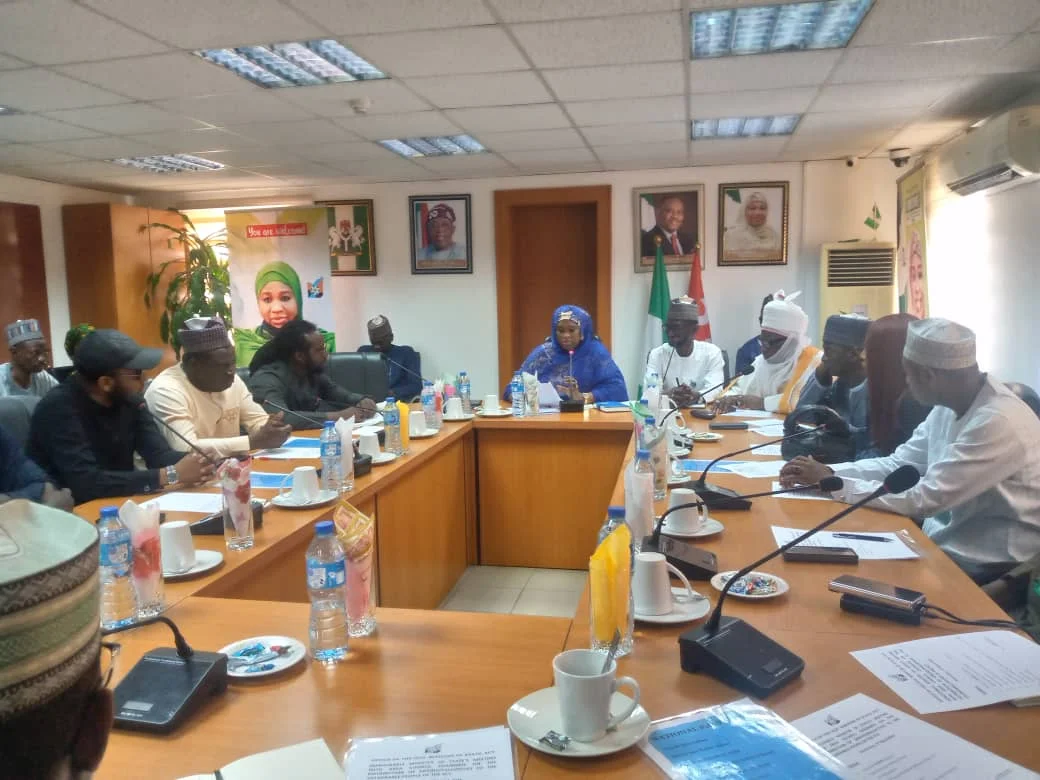Business
IMF Forecasts Higher Economic Growth For Nigeria

The International Monetary Fund (IMF) has projected an economic growth of 2.5 per cent for Nigeria in 2021.
This is higher than the 1.5 per cent IMF’s 2021 forecast earlier announced for the country in January.
The Washington-based institution made this known in its April World Economic Outlook report obtained, yesterday.
Nigeria exceeded recession as its Gross Domestic Product (GDP) recorded a slight growth of 0.11 per cent in the fourth quarter of 2020, according to figures from the National Bureau of Statistics (NBS) revealed in February, 2021.
The organisation also forecast a 3.4 percent growth for the Sub-Saharan Africa region in 2021.
This is 0.2 per cent higher than the previous forecast for the region.
Part of the report read, “Following a sharp drop in 2020, only a mild and multispeed recovery is expected in Latin America and the Caribbean in 2021. Thanks to the global manufacturing rebound in the second half of 2020, growth exceeded expectations in some large exporting countries in the region (for example, Argentina, Brazil, Peru) bringing the 2021 forecast to 4.6 percent (a 1 percentage point revision).
“The longer-term outlook continues to depend on the path of the pandemic, however. With some exceptions (for example, Chile, Costa Rica, Mexico), most countries have not secured enough vaccines to cover their populations.
“Moreover, 2021 projections for the tourism-dependent Caribbean economies have been revised down by 1.5 percentage points to 2.4 percent. The pandemic continues to exact a large toll on sub-Saharan Africa (especially, for example, Ghana, Kenya, Nigeria, South Africa).
“Following the largest contraction ever for the region (–1.9 percent in 2020), growth is expected to rebound to 3.4 percent in 2021, significantly lower than the trend anticipated before the pandemic. Tourism-reliant economies will likely be the most affected.”
Business
NCDMB Tasks Media Practitioners On Effective Reportage

Business
FCTA, Others Chart Path To Organic Agriculture Practices

The Federal Capital Territory Administration (FCTA) and other stakeholders have charted path to improved organic agriculture practices nationwide.
At a 2024 national organic and agroecology business summit held recently in Abuja, stakeholders took turn to speak on the additional areas of promoting the practices.
The Mandate Secretary, FCT Agriculture and Rural Development Secretariat (ARDS), Lawan Geidam, advocated for sustainable practice to develop resilient food systems that will benefit people.
The event, with the theme,”Towards Policies for Upscaling Organic Agroecological Businesses in Nigeria”, is aimed at fostering growth in the organic agriculture sector.
Geidam, who was represented by the Acting Director, Agric Services, in the Secretariat, Mr. Ofili Bennett, emphasised the success of organic and agroecological farming, reling on the active involvement of farmers, businesses and consumers.
He reassured attendees that the FCT Administration, led by the Minister, Nyesom Wike, and Minister of State, Dr. Mariya Mahmoud, remains dedicated to supporting initiatives that enhance the livelihood of residents.
Geidam described the partnership between the Secretariat and the organic and Agroecology initiative for a monthly exhibition and sale of organic products in the FCTA premises as a testament to this commitment.
“The ARDS remains committed to driving policies and initiatives that align with national goals and global standards”, Geidam said.
On her part, the Chairperson of Organic and Agroecology Initiative, Mrs. Janet Igho, urged residents to embrace healthy eating habits to sustain a good lifestyle. She stressed the importance of adopting organic practices, highlighting the benefits of going organic, growing organic and consuming organic products.
Igho expressed her optimism regarding the Agricultural Revival Programmes as articulated in President Bola Ahmed Tinubu’s “Renewed Hope Agenda”, which aims at fostering food and nutrition security.
She also extended her gratitude to ARDS for graciously allocating a space in the FCTA premises for the exhibition and sale of organic products, noting that the platform has been effectively used to advance the promotion of organic agriculture in FCT.
Igho outlined several benefits of organic agriculture which includes improved soil health, increased biodiversity, availability nutritious and healthy food and a reduced carbon footprint.
Stakeholders at the summit, underscored the critical need for enhanced private sector involvement and robust capacity building initiatives for farmers.
They highlighted the importance of implementing supportive policies to foster the growth of the organic agriculture sector.
In the light of the significant challenges facing Nigeria’s agricultural landscape, stakeholders decided that organic agricultural practices present sustainable solutions and a pathway for a more resilient and productive farming systems.
The three-day summit featured exhibitions showcasing organic foods, fruits, vegetables and fertilizers, providing an opportunity for residents to better appreciate the benefits of production and consumption of organic agricultural products.
Business
Dangote Refinery Exports PMS to Cameroon

-

 News4 days ago
News4 days agoNAFDAC Demands Full Compliance With Ban On Satchet, PET Bottle Alcohol
-
Niger Delta9 hours ago
LIFE-ND Inaugurate Agric Forum To Boost Jobs, Farming In Bayelsa
-
News5 hours ago
Bring More Cultural, Arts Events To PH, Fubara Tasks Abuja Carnival Organisers …•To Launch Talent Hunt For Rivers Youths Soon
-

 Business4 days ago
Business4 days agoCustoms Marine Command Nabs Three Suspects
-

 Rivers4 days ago
Rivers4 days agoLawmaker Tasks Govt On Indigenous Cultures, Languages Promotion
-
News6 hours ago
RSHA Moves To Investigate Oil Spill In Bonny …As Two Bills Pass First Reading
-
Politics3 hours ago
NGO Passes Confidence Vote On Fubara Over Dev Strides
-

 News4 days ago
News4 days agoFG Denies Appointing Ambassadors, Urges Nigerians To Disregard Fake List

